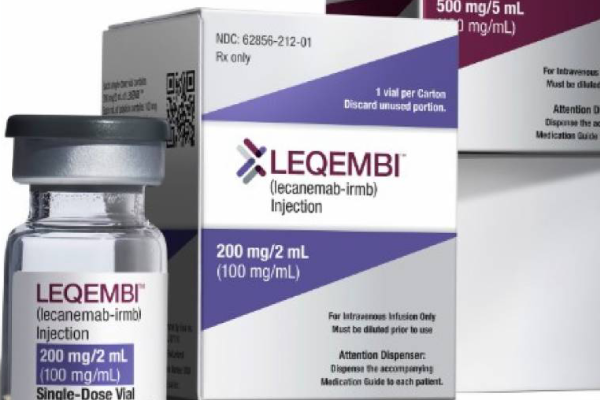An eagerly awaited new medication intended to reduce cognitive deterioration in those with mild and early stages of Alzheimer’s disease has been given FDA approval.
Alzheimer’s disease, which is prevalent in 6.5 million Americans and is marked by memory loss and deteriorating mental sharpness, is also known as dementia.
The FDA’s approval of Leqembi, also known as lecanemab, comes only days after the agency was chastised in a congressional report for its approval of another Alzheimer’s medicine, Aduhelm.
Both medications were approved under an expedited process, which allows the FDA to expedite approval of treatments for serious illnesses with unmet medical needs.
The FDA said in a statement that “Leqembi and Aduhelm, which were jointly developed by Japan’s Eisai and Biogen of the United States, represent an important advancement in the ongoing fight to effectively treat Alzheimer’s disease.”
The statement quoted Billy Dunn of the Administration’s Center for Drug Evaluation and Research saying, “Alzheimer’s disease immeasurably incapacitates the lives of those who suffer from it and has devastating effects on their loved ones,”
He said “Leqembi, the latest therapy to target and affect the underlying disease process of Alzheimer’s, instead of only treating the symptoms of the disease.”
Preliminary data from a trial of Leqembi was released in September and found it slowed cognitive decline in Alzheimer’s patients by 27 percent.
The phase three trial involved nearly 1,800 people, divided between those given the drug and given a placebo, and ran over 18 months.
The complete trial data, published in the New England Journal of Medicine, raised concern about the incidence of “adverse effects” including brain bleeds and swelling.
The results showed that 17.3 percent of patients administered the drug experienced brain bleeds, compared with nine percent of those receiving a placebo. And 12.6 percent of those taking the drug experienced brain swelling, compared with just 1.7 percent of those in the placebo group.
Deaths were reported at approximately the same rate in both arms of the trial of the drug.
In Alzheimer’s disease, two critical proteins, tau and amyloid beta, form tangles and plaques known as aggregates, which kill brain cells and cause brain atrophy.
Leqembi, which is given intravenously every two weeks, operates by concentrating on amyloid.
Patients who received Leqembi experienced a statistically significant reduction in brain amyloid plaque compared to those who received a placebo, who had no reduction in amyloid beta plaque.
Aduhelm was earlier brought to market by Biogen and Eisai, but there was major dispute about whether it worked, and its approval in 2021 resulted in three high-level FDA resignations.
According to a US Senate probe, the fast approval procedure for Aduhelm, the first medicine approved in decades to treat Alzheimer’s, was “rife with anomalies,” and both the government and Biogen were condemned.














